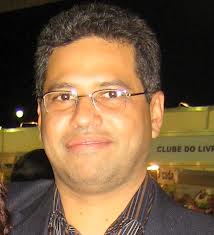 Almost six years after Brazil started publicly discussing its Copyright Bill, the first concrete changes start turning into law. On August 15, the sanctioned Amendment got published under number 12.853 and is available, in Portuguese, at http://www.planalto.gov.br/ccivil_03/_Ato2011-2014/2013/Lei/L12853.htm.
Almost six years after Brazil started publicly discussing its Copyright Bill, the first concrete changes start turning into law. On August 15, the sanctioned Amendment got published under number 12.853 and is available, in Portuguese, at http://www.planalto.gov.br/ccivil_03/_Ato2011-2014/2013/Lei/L12853.htm.
It focuses on the regulation of Brazilian Music CMO (ECAD) – but affects all others CMOs – and implements some important changes such as the creation of a supervision, mediation and arbitration government body; strict transparency rules for CMOs; price setting criteria; liability rules for directors and managers; put a cap (15% in 4 years) on the administrative fee charged by CMOs; and limits the Directors’ terms.
This may seem frivolous but is an important step towards regulation of the Copyright Industries, something they got rid of when TRIPS got implemented in Brazil.
The reform is absolutely incomplete, as it hasn’t worked at all on the limitations, the contracts or the guiding principles of the Copyright Act. A more substantial amendment is waiting on the Civil Cabinet to be sent to Congress. It is expected to reach the legislative by September. We will see!!
On the road to Brazil
Unsurprisingly, on July 30th, the International Confederation of Societies of Authors and Composers – CISAC – addressed the Brazilian President, Dilma Roussef, urging her to halt the Amendment Bill to Brazilian Copyright Act that regulates the Collective Management in the country.
CISAC basically claims that the bill wasn’t thoroughly and openly discussed and that not all stake holders were taken into consideration. Interestingly, their discourse repeats the “author’s defense” strategy all through, positioning as victims, even though the Act was pushed through by authors unhappy with the CMO.
In response, a group of musicians and composers that were key in pressuring for a change in the legislation wrote a letter – see the English version – stating that they are not represented by this Institution and contesting every argument brought about by CISAC. It is worthy reading as it synthesizes a stray of arguments brought about during the legislative process.
The Amendment Bill is a result of a Senate Investigation on the then alleged wrongdoings of Brazilian Music CMO through 2012. The end-results of the Senate investigation were baffling for most, although it came as no surprise to those following closer the whereabouts of the Organization. All sorts of wrongdoings were uncovered a serious accusations were made. The case is been sent to the prosecutors.
This is all fine and good when it comes to regulation the CMOs and the authors and artists profits. However I wonder how the artist’s groups are going to act when it comes to discuss the limitations. My guess is that civil society public interest groups will have to organize themselves very well and strongly in order to counter balance or overpower such Organizations and be able to reach some minimum consensus.




